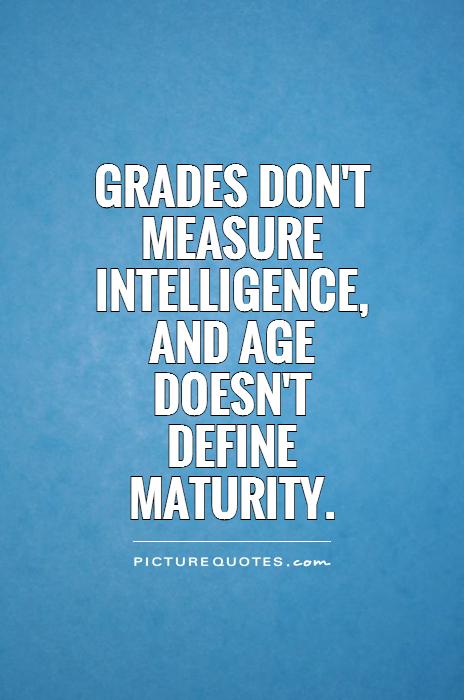Grades don't measure intelligence, and age doesn't define maturity

Grades don't measure intelligence, and age doesn't define maturity
Intelligence is a complex and multifaceted trait that cannot be accurately measured by something as simple as a grade on a test. While grades can be a useful tool for assessing a student's understanding of a particular subject, they do not provide a complete picture of a person's intelligence. Intelligence encompasses a wide range of abilities, including critical thinking, problem-solving, creativity, and emotional intelligence, all of which are difficult to quantify with a letter grade.Furthermore, intelligence is not static and can develop and change over time. Just because a student receives a low grade on a test does not mean they are not intelligent. It may simply mean that they struggled with that particular subject or had difficulty expressing their knowledge in a traditional testing format. Conversely, a student who consistently receives high grades may not necessarily be more intelligent than their peers. They may simply excel at memorizing information or performing well on tests.
Similarly, age does not necessarily define maturity. While it is true that most people tend to become more mature as they get older, maturity is not solely determined by age. Some individuals may exhibit a high level of maturity at a young age, while others may struggle with immaturity well into adulthood. Maturity is a complex combination of emotional intelligence, life experiences, and personal growth, all of which can vary greatly from person to person.












 Friendship Quotes
Friendship Quotes Love Quotes
Love Quotes Life Quotes
Life Quotes Funny Quotes
Funny Quotes Motivational Quotes
Motivational Quotes Inspirational Quotes
Inspirational Quotes